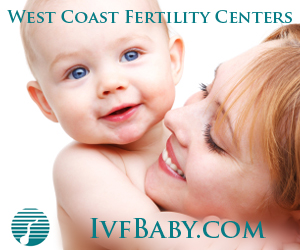
So you’ve mapped out your future and everything is planned down to the month. You’ll have the keys to that executive washroom after your 10th year of ladder climbing. There will be a few cruises to the Caribbean, that leap out of a plane to land on a target in the middle of a field somewhere in the Midwest, and training for the Boston Marathon.
Once that’s all done, you can begin to settle into the idea that little feet will be scurrying around the house, as you get to the serious business of starting a family.
The only problem is about this time you run into an acquaintance who has spent the last five years trying to have a child after learning that her eggs were past their prime, and recoil in horror as she describes the pincushion her butt cheeks have become, the instruments of torture that have been inserted into her weekly, and the thousands of dollars she has shelled out for maybe a 25% chance of success with her own eggs.
You panic because you are a couple of years older than her, and you begin your journey into the jungle of infertility. After reading a few dozen articles about the optimum age for conceiving a child, you realize your eggs are about ten years too old to have a good shot at working even with an IVF (in vitro fertilization – the highest tech of all the infertility procedures available), and may have to contemplate the reality of taking your own biology out of the equation, and start selecting from a bank of donors that can provide you with more viable, younger eggs (this is based on the true life story of an infertility support group member).
The New Scenario
Egg freezing provides an alternative ending for this scenario. Imagine if you had discovered back in the early years of that master planning that you could freeze your biological clock in its tracks, and save those eggs in their younger, more fertile state.
That’s exactly what egg freezing, or ‘oocyte cryopreservation’ offers.
How It Works
You’ll need to carve out some time from your busy schedule to make this all happen. Hormone injections will be necessary to grow the eggs to maximize the number you freeze for future use. The shots may be painful, the hormones may, or most certainly will make you feel a little ‘different’ (politically correct for psycho, emotional, angry, confused, and flushed), and you’ll be in the doctor’s office getting ultrasounds to track how things are growing so the extraction can be done when the eggs reach the optimal growth stage.
Since you’ll be growing more than the standard one egg that comes with a normal ovulation, you will likely experience more bloating and discomfort than normal (usually the target harvest is somewhere in the 20-25 egg range).
The eggs need to be extracted from your ovaries. Unfortunately, there is no other way to accomplish this except to put a needle into your ovary and suck them out. Although this is an outpatient procedure, even the most stoic CrossFit rough neck is going to feel some discomfort from this process.
Once the eggs are extracted, the magic of ‘flash freezing’ stops the ticking hands of your biological clock, only to be restarted when you are ready in the future to thaw them out and introduce them to the man of your dream’s sperm to start your biological family.
Do Your Research
Like any reproductive technique, it’s important to find out the pregnancy success rates from these ‘vitrified’ eggs at the clinic you decide to use for this process. Don’t be surprised if there isn’t much data on hand – the American Society for Reproductive Medicine only recently lifted the ‘experimental’ label from this process in 2012, so a lot of clinics are just adding egg freezing to their list of assisted reproduction services.
If your master plan includes starting a biological family later in life, be sure to add ‘talk to an egg freezing clinic professional’ to your to-do list.





